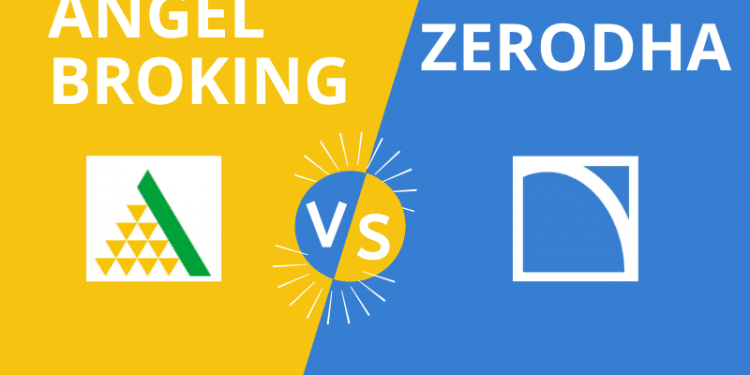STOCKBROKERS
Who is a Stockbroker?
A stockbroker is a professional trader who buys and sells shares on behalf of clients. The stockbroker may also be known as a registered representative or an investment advisor. Most stockbrokers work for a brokerage firm and handle transactions for a number of individual and institutional customers.
Brokerage firms and broker-dealers are also sometimes referred to as stockbrokers. This includes both full-service brokers and discount brokers, who execute trades but do not offer individualized investing advice..
Types of brokers
Based on the types of clients they cater to, stock brokers are usually classified into two distinct categories:
- Institutional Stock Brokers: They have large institutions and companies as their clients and trade in securities on behalf of them. They offer services such as investment banking, securities services (IPO or secondary offerings), advisory services, and brokerage services to institutional investors.
- Personal Stockbrokers: Personal stockbrokers offer investment banking, advisory services and brokerage services to small businesses and individual investors.
Services offered by a Stock market broker
- Buying : One of the most basic responsibilities of a stockbroker is to buy stocks on behalf of his client; he may do this in different ways, depending on the type of account the client has. In a discretionary account, the stockbroker buys stock for a client based on some prearranged guidelines. In an advisory account, however, the stockbroker only advises a client on what stock to buy, while in an execution account, the stockbroker only buys stock that the client has specifically indicated.
- Selling: The other responsibility a stockbroker has is selling stock on behalf of a client. Just as in the case of buying stock, the stockbroker can only sell stocks of a client based on the account that a client signed up for. If a client has an execution-only account, the stockbroker can only sell a client’s stock when asked to do so. If a client has an advisory account, a stockbroker can only advise the client to sell his stocks, while if a client has a discretionary account, a stockbroker has some leeway on selling the stocks based on a prearranged guideline.
- Advisory services: Stock Market brokers possess expertise related to the working of stock market, performance of stocks, market trends, and so on. Besides, they have access to the database and research findings of brokerage firms that they are associated with. Hence, they can provide excellent investment advice to their clients.
- Research: Competent stockbrokers research accounting, economic and technical analysis of different companies and stocks. Their findings form the basis of their feedback to a client. If a stockbroker believes a client’s stock’s price will drop drastically, he’ll advise him to sell when the price is still high. If, on the other hand, a stockbroker believes the price of a client’s stock will rise significantly, he may advise him to retain the stock.
Educational Requirements for Stockbrokers
The minimum educational qualification required to become a stock broker is a graduation with at least 2 years of experience in a stock broking firm. A sub-broker (the previous stage of being a broker) needs to have passed the class 12th standard to be eligible for his job. Minimum age: 21 years.
A strong understanding of financial laws and regulations, accounting methods, principles of economics and currency, financial planning and financial forecasting all are useful for working in the field.
COMPARATIVE ANALYSIS: ANGEL BROKING Vs ZERODHA
 Angel Broking is an Indian stockbroker firm, founded by Dinesh Thakkar, in 1987. It is a member of the Bombay Stock Exchange (BSE), National Stock Exchange of India (NSE), National Commodity & Derivatives Exchange Limited and Multi Commodity Exchange of India Limited. It is a depository participant with Central Depository Services Limited (CDSL).
Angel Broking is an Indian stockbroker firm, founded by Dinesh Thakkar, in 1987. It is a member of the Bombay Stock Exchange (BSE), National Stock Exchange of India (NSE), National Commodity & Derivatives Exchange Limited and Multi Commodity Exchange of India Limited. It is a depository participant with Central Depository Services Limited (CDSL).
Zerodha Broking Limited is an Indian financial services company (a member of NSE, BSE, MCX), founded by Nitin Kamath, in 2010.As of December 2020, Zerodha was the largest retail stockbroker in India by active client base, and contributes upwards of 15% of daily retail volumes across Indian stock exchanges.In June 2020, Zerodha entered the unicorn club with a self-assessed valuation of about $1 billion.
Angel broking is a public company headquartered in Mumbai whereas Zerodha is a private company headquartered in Bangalore.
Angel broking is full service broker , which means it is a licensed financial broker-dealer firm that provides a large variety of services to its clients, including research and advice, retirement planning, tax tips, and much more whereas Zerodha is a discount broker which means they carry out buy and sells orders at reduced commission rates, however, they do not offer personal consultations, advice and research to customers.
Both of the companies provide services in the financial sector. Angel broking provides services like,equity trading, commodities, portfolio management services,mutual funds , life insurance, health insurance, IPO, depository services and investment advisory however Zerodha provides equity trading, derivative trading, currency trading, commodities, mutual funds and government bonds.
Other than these some advantages of angel broking are Advisory services ,Trading in all market segments on BSE, NSE, MCX, NCDEX , Widespread Sub-brokers and partners network ,Offers Commodity Trading ,Free Demat Account whilst Zerodha provides , No Brokerage on Equity Delivery and mutual funds , Flat rate for stock Trading ,Own DP services ,Good Brokerage and margin Calculator ,Offers up to 20x leverage on intraday trading ,Offers most advanced online trading tools ,Offers facility to apply online IPO and a Strong Customer Service.
If we take a look at the disadvantages, Angel Broking doesn’t offer a 3-in-1 account, charges high Brokerage , not suitable for small and penny stock traders as they charge minimum brokerage of 30 Rs for your trade and also has Hidden charges and Zerodha provides no margin funding, has high charges on call and trade @ Rs50 per call, charges on funds transfer @9Rs per fund transfer, charges for sms alerts, additional charge of ₹50 per executed order for MIS/BO/CO positions ,doesn’t provide stock tips, research reports or recommendations and doesn’t offer Unlimited Trading plans.
Why to choose Angel broking?
- Wide Network with over 8500 Sub-brokers and Franchise partners in 900+ cities in India.
- Offers Demat account absolutely free.
- Personalised investment advice through artificial intelligence based investment engine.
- Provides Top quality research powered by ARQ predictions, which help to pick n invest in best stocks.
- Call-n-Trade: you can place orders securely over the telephone with the Call N Trade service.
Why Do I Choose Zerodha over Angel Broking?
- Charges flat rate of ₹20 per executed order.
- Does not charge any brokerage on Equity delivery transactions.
- Provides a platform to invest in mutual funds.
Innovative trading platform. - No upfront fee, no minimum brokerage and no minimum contract charges.
- The largest stockbroker by active clients, markerrrrrrrtyuit volume.
- Zero brokerage Direct Mutual Funds.
- Offers up to 20x leverage on intraday trading.
